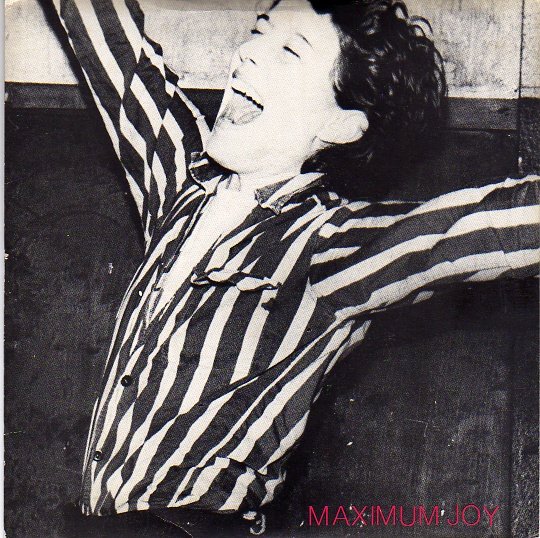Listening to Janine Rainforth shout “Don’t say maybe, tell me Yeah!” is like listening to a punk fitness instructor teaching a class that involves cannon-balling around a Warehouse in Bristol sometime circa 1982. It is pure fuel; music as motivational instruction. I discovered Maximum Joy about the same time as I was dipping into the world of Gl*xo Babies, The Pop Group, and the Bristol scene of Avon Calling. Maximum Joy stood out as a supremely populist gesture — a striking aural poster campaign that appealed with a vivid sound to those who believed you could dance to fringe music.
The Pop Group were Nick Cave’s ideal antidote to Thatcher’s 1980s London. Disappointed with the marshmallow Pop that thickly coated the surface of London cultural life, he was awakened by their scabrously skeptical, yet theatrical performances of songs like “We Are All Prostitutes.” The Gl*xo Babies were provocative too, but less successful. While they were experimental, they lived with the New Wave curse that punk’s purity had engendered; they avoided most sounds and fixations of the Bristol Scene without deciding on a clear direction out of it. Maximum Joy, on the other hand, were prepared to admit any genre that struck them, like the funk and disco of Chic, which the former Gl*xo members had admired but hadn’t attempted to emulate. The Jazz sympathizers of Gl*xo Babies — including their saxophonist — formed Maximum Joy with one member of The Pop Group and Janine Rainforth. Ex Gl*xo Babies member Rob Chapman made the eloquent observation that “Jazz is a life long apprenticeship, not a stylistic indulgence” on leaving the band with his own aspirations to incorporate Syd Barrett-like psych folk.
Because of/despite this, Maximum Joy feels like joyful celebrations among the ruins. Chapman may have been right about Jazz, but Maximum Joy succeeded in making something else: early hands-in-the-air dub/club music. Dub and sampled tracks like “Silent Street” are everlastingly long, and they feel less like virtuoso sessions for instruments than for bodies. The remnant carried over from punk is not even the edginess, it’s the motivational sloganeering: “Stay Positive, stay Plus!” “Stretch (Discomix Rap)” crosses over into leg-warmer territory but returns with its Jazz-sax solos and raps still fresh in the ear. You’d think that by now these hybrid marriages of genres wouldn’t surprise your average internet crate digger, but Maximum Joy still seem to defy the odds of where they came from — a little bit like the Flashdance welder of Bristol punk.
